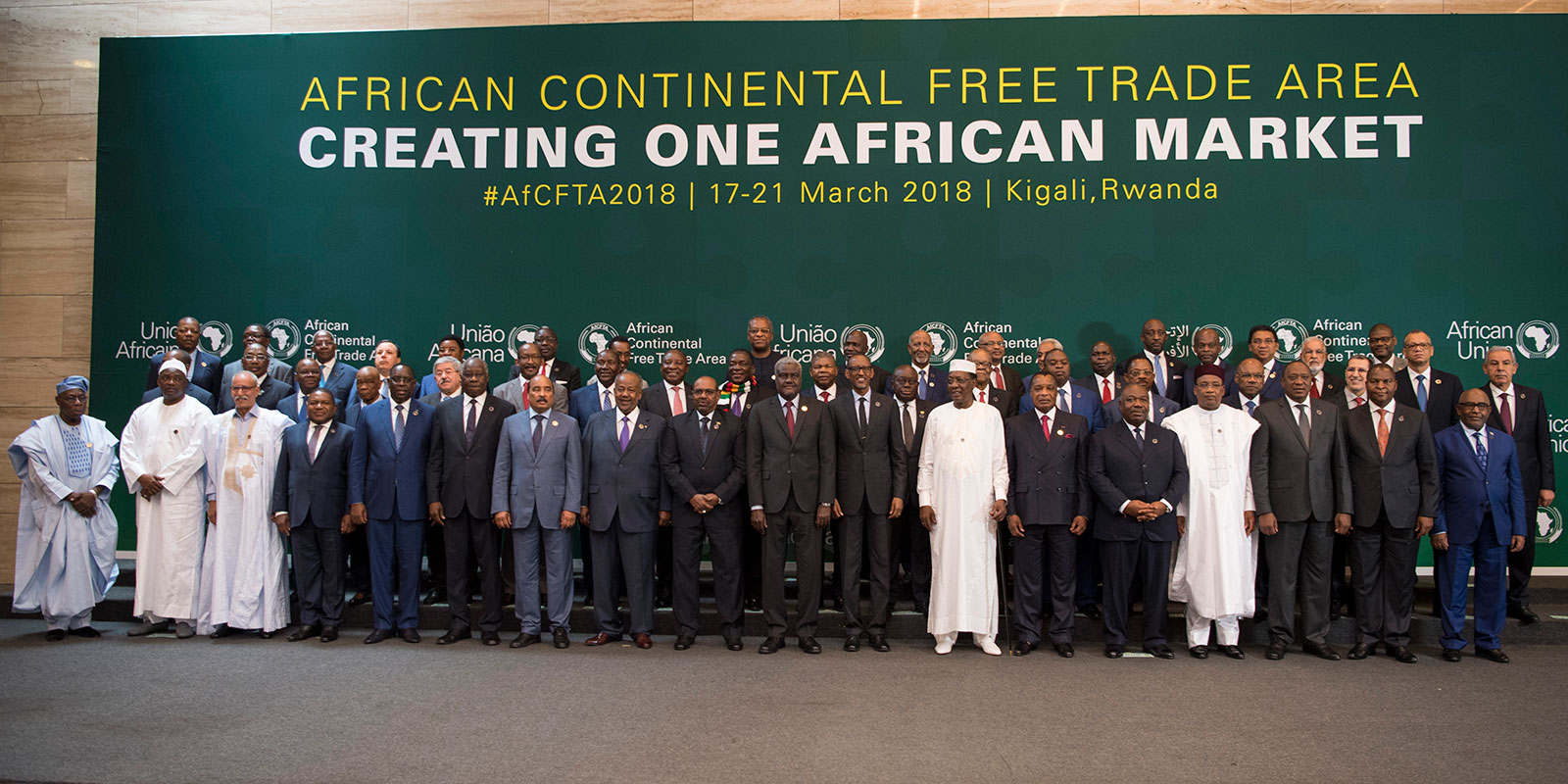The AfCFTA offers Africa an opportunity to confront the significant trade and economic development challenges of our time: market fragmentation; the smallness of national economies; over-reliance on the export of primary commodities; a narrow export base, caused by shallow manufacturing capacity; the lack of export specialisation; underdeveloped industrial regional value chains; and high regulatory and tariff barriers to intra-Africa trade, among others.
Africa has confounded critics, standing on the shoulders of the great liberation struggle heroes of our continent. We dare not fail in this historic mission to integrate Africa @MeneWamkele
Tweet
The result of all of this is a very low percentage of intra-Africa trade of 18% – and, as noted, an over-reliance on the export of primary commodities to traditional markets of the North. In other words, Africa continues to be trapped in a colonial economic model, which requires that we aggressively implement the AfCFTA as one of the tools for effecting a fundamental structural transformation of Africa’s economy. We have to take action now to dismantle this colonial economic model. The AfCFTA is therefore a critical response to Africa’s developmental challenges. It has the potential to enable Africa to significantly boost intra-Africa trade and to improve economies of scale through an integrated market. It has the potential to be a catalyst for industrial development, placing Africa on a path to exporting value-added products and improving Africa’s competitiveness, both in its own markets and globally.
This is a period of unprecedented challenge to the global economy and the multilateral trading system on which the global economy is anchored. The multilateral trading system is under severe strain, largely due to what appears to be an abandonment of the rules that underpin it. This strain on the multilateral trading system has the risk of reversing the modest gains that we have made in placing development at the centre of the multilateral trading system, since we launched the Doha Development Agenda in 2001. Africa’s response to this strain must be to consolidate and advance our continental market integration objectives, through the AfCFTA.
The global economy is facing unprecedented challenges. Africa’s response must be to consolidate and advance our continental market integration objectives, through the #AfCFTA @MeneWamkele
Tweet
The ongoing COVID-19 crisis has ravaged global economic activity and has severely disrupted trade and global supply chains – and, of course, has had a negative effect on global public health. Africa should not despair and fall into despondency. From a trade perspective, we should see this crisis as an opportunity: through the AfCFTA, we have an opportunity to reconfigure our supply chains, to reduce reliance on others and to expedite the establishment of regional value chains that will boost intra-Africa trade and secure Africa’s productive capacity for generations to come.
We should recall that the empowerment of women, young Africans and other disadvantaged segments of our society is a central objective of Agenda 2063: The Africa We Want. We know from empirical evidence that women, young Africans and small and medium enterprises (SMEs) confront significant challenges when attempting to benefit from trade agreements. I therefore intend to take concrete steps to ensure that women and young Africans are at the heart of the implementation of the AfCFTA. The AfCFTA must create opportunities for women in trade; among others, by lowering the gender wage gap. Young Africans are at the cutting edge of technological innovation for digital trade and e-commerce. The AfCFTA has an obligation to establish a conducive environment to include young Africans in its implementation.
The implementation phase of the AfCFTA coincides with the year of Silencing the Guns, providing an opportunity to focus on fast-tracking Africa’s economic development objectives. Successful implementation of the AfCFTA shall further consolidate the gains that are foreseen in Agenda 2063: The Africa We Want – and indeed, shall take us a step closer to the Africa we want. A recent study by the World Bank estimates that where implemented properly, by 2035 the AfCFTA is set to lift 30 million Africans out of extreme poverty and 68 million from moderate poverty. The same study observes that the AfCFTA has the potential to increase intra-Africa trade by 81% by the year 2035. As promising and hopeful as these projections are, as Africans and the AfCFTA Secretariat we shall have to take concrete steps to ensure that these promising projections do become a reality. Among other actions, we have to expedite the implementation of trade facilitation measures that are foreseen in the AfCFTA Agreement in areas such as soft infrastructure at our borders.
Aggressively implementing the #AfCFTA has the potential to be Africa’s economic post-#COVID19 recovery tool @MeneWamkele
Tweet
During this time of COVID-19, whilst many developed countries are able to provide billions of dollars’ worth of stimulus packages to reinject growth and economic activity, very few countries in Africa have the fiscal policy and monetary policy space to provide similar stimulus packages. Therefore, aggressively implementing the AfCFTA has the potential to be Africa’s economic recovery tool, and boosting intra-Africa trade has the potential to contribute to Africa’s economic recovery year on year, from 2021. Africa has confounded critics, standing on the shoulders of the great liberation struggle heroes of our continent. We dare not fail in this historic mission to integrate Africa.
This piece is drawn from the statement delivered by the Secretary-General H.E. Wamkele Keabetswe Mene during the official commissioning and handing over of the African Continental Free Trade Area (AfCFTA) Secretariat. The full version is available at: https://au.int/en/pressreleases/20200817/secretary-general-statement-handover-ceremony-afcfta-buildings
H.E. Wamkele Keabetswe Mene is the secretary-general of the African Continental Free Trade Area (AfCFTA) Secretariat.


